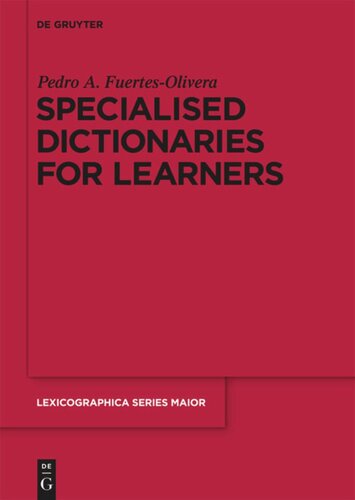

Most ebook files are in PDF format, so you can easily read them using various software such as Foxit Reader or directly on the Google Chrome browser.
Some ebook files are released by publishers in other formats such as .awz, .mobi, .epub, .fb2, etc. You may need to install specific software to read these formats on mobile/PC, such as Calibre.
Please read the tutorial at this link: https://ebookbell.com/faq
We offer FREE conversion to the popular formats you request; however, this may take some time. Therefore, right after payment, please email us, and we will try to provide the service as quickly as possible.
For some exceptional file formats or broken links (if any), please refrain from opening any disputes. Instead, email us first, and we will try to assist within a maximum of 6 hours.
EbookBell Team

0.0
0 reviewsThe need for constructing a lexicographical theory with a particular focus on specialised dictionaries for learners is well documented in recent publications. This will imply paying attention to, at least, four basic lexicographic categories: learners; the learner's situation; the learner's needs; dictionary assistance. In one or other way, these categories are analysed in this book, whose eleven chapters are grouped into three parts. Part 1 reflects on some of the main ideas defended by the function theory of lexicography, perhaps the theoretical framework that has paid more attention to specialised lexicography. Part 2 presents some proposals that have already being explored in the field of general learner's dictionary and must be incorporated into specialised metalexicography: cultural aspects; figurative meaning; the inclusion of grammatical information; the use of corpora. Part 3 introduces the state of play regarding specialised dictionaries in China and offers some ideas for coping with the proliferation of terminological glossaries in Internet. The book also describes Enrique Alcaraz's academic achievements, together with some personal anecdotes, and a personal short tribute to his memory.